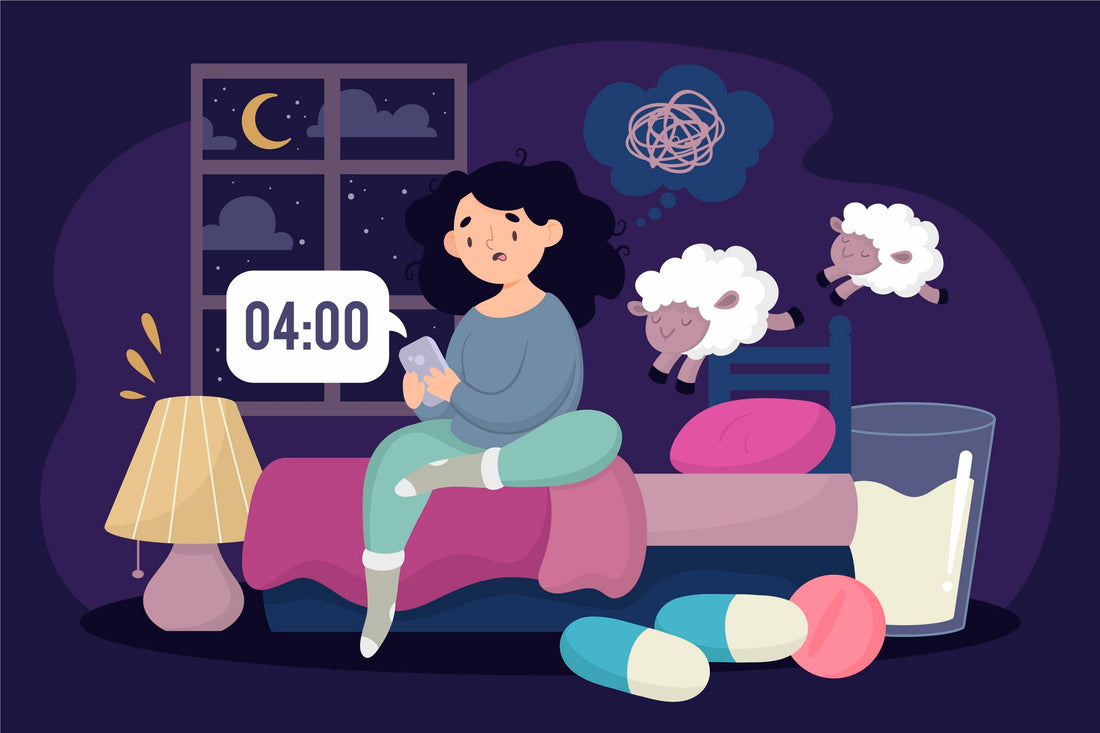
Night Owls, Take Note: Late Bedtimes Linked to Mental Health Risks
Share
How Sleeping After 1 a.m. Might Be Quietly Sabotaging Your Mind
For years, night owls have defended their nocturnal tendencies as personal preference or natural circadian rhythm. But a groundbreaking study from Stanford University has just thrown a wrench into the narrative: regardless of whether you're genetically predisposed to stay up late or simply prefer late-night hours, consistently sleeping after 1 a.m. is now linked to increased mental health issues.
This discovery doesn't just affect a few. In a society increasingly driven by screen time, flexible work hours, and digital entertainment, millions of people are extending their days well into the early hours of the morning. But what if that quiet solo time is coming at the cost of mental resilience, emotional stability, and long-term well-being?
The Stanford Study: What They Found
Researchers at the Stanford Center for Sleep Sciences analyzed data from over 75,000 adults, leveraging both survey and sleep tracking data. They found a strong correlation between bedtimes after 1 a.m. and a rise in reported mental health challenges—including depression, anxiety, and emotional dysregulation.
This study controlled for other variables like total sleep duration, quality of sleep, and existing psychiatric diagnoses. In other words: it’s not just about how much sleep you get—it’s about when you go to bed.
"Humans have an internal biological clock that's not just concerned with sleep. It regulates hormones, mood, and even the immune system," says Dr. Joshua Tam, lead researcher of the study. "When that clock is misaligned due to staying up late, it triggers a cascade of physiological disruptions."
Chronotype vs. Social Jetlag
There are two key concepts at play:
-
Chronotype – your natural inclination toward morning or evening activity (e.g., early bird vs. night owl)
-
Social Jetlag – the mismatch between your internal clock and your external obligations (e.g., staying up late but waking up early for work)
The Stanford team found that even those with a natural evening chronotype suffered psychological consequences when going to bed later than 1 a.m. It appears that pushing the body's rhythm past this point induces a form of biological misalignment—similar to how travelers feel after flying across multiple time zones.
Bottom line: going to sleep late—even if it feels natural—is not biologically neutral.
What Happens in the Brain After 1 a.m.?
This phenomenon has a neurobiological foundation:
-
Reduced serotonin synthesis – key in regulating mood
-
Altered cortisol rhythms – impacting stress response
-
Disrupted melatonin signals – leading to poor sleep efficiency
Neuroscientists believe that the brain enters a different state post-1 a.m., characterized by reduced impulse control, increased rumination, and overactivity in the amygdala (the emotional response center). This can make you more vulnerable to negative thoughts and emotional instability.
The Digital Elephant in the Room
Let’s be blunt: phones, laptops, Netflix, and TikTok are fueling this problem. A 2023 Pew study showed that 70% of 18–34 year olds report screen time past midnight daily. This is exacerbated by algorithms designed to keep users scrolling.
Not only does screen time suppress melatonin due to blue light exposure, but it also keeps the brain in a hyper-stimulated state. Combine that with a vulnerable post-1 a.m. brain, and it’s a perfect recipe for anxiety, sleep debt, and burnout.
Mental Health Fallout: The Numbers
Participants with regular sleep onset after 1 a.m. were:
-
2.1x more likely to report moderate to severe depression symptoms
-
1.7x more likely to experience anxiety disorders
-
1.5x more likely to use sleep aids or report sleep dissatisfaction
These associations held even when total sleep hours were controlled for. In other words, getting 7–8 hours isn’t a safety net if you start those hours at 2 a.m.
Real-World Case: Sarah, 29
Sarah, a freelance designer, thrived on late-night creativity. "I’d often get a rush of inspiration around midnight," she says. But after a string of anxiety attacks and prolonged fatigue, she consulted a sleep coach.
"I was shocked to learn that my 2 a.m. sleep schedule could be triggering my mental health issues," she admits. After gradually adjusting her bedtime to 11:30 p.m., Sarah noticed more energy, clearer thinking, and a significant drop in anxiety.
So What Can You Do?
-
Set a Hard Stop – Treat 11:30 p.m. as a bedtime appointment. No exceptions.
-
Kill the Scroll – Blue light filters and screen curfews at least 60 mins before bed.
-
Bedtime Rituals – Reading, journaling, magnesium drinks—anything that signals your body it’s wind-down time.
-
Monitor Your Mood – Use mood tracking apps to correlate bedtime with emotional resilience.
-
Light Manipulation – Bright light in the morning and dim lighting post-sunset help reset circadian rhythm.
Who Should Care Most?
-
Entrepreneurs burning the midnight oil
-
College students binge-studying or gaming
-
Remote workers with no fixed structure
-
Parents of teens whose sleep cycles drift late
For all of these groups, realigning sleep onset to earlier hours can be a high-leverage mental health intervention.
What This Means for the Future
This study challenges the narrative that sleep timing is personal preference. It shows that biological alignment matters—and ignoring it may be silently costing millions their emotional well-being.
As more data emerges, we can expect to see increased workplace accommodations, digital interventions, and possibly public health campaigns centered around "circadian-aligned lifestyles."
Final Thought
The hustle culture glamorized late nights. But science is clear: the cost of productivity after midnight may be mental clarity, emotional strength, and long-term psychological health.
Sleep before 1 a.m. isn’t just a habit—it’s a mental health strategy.
